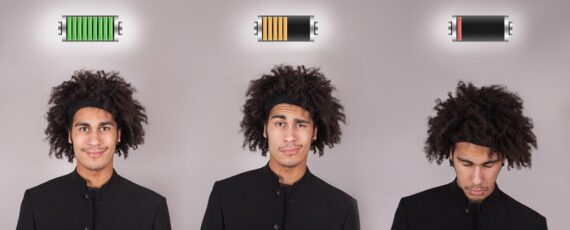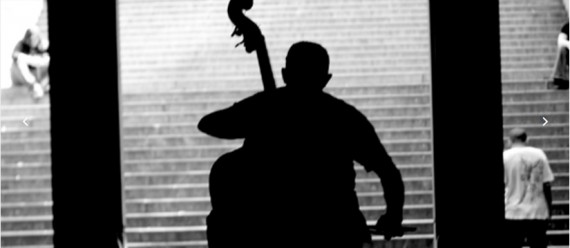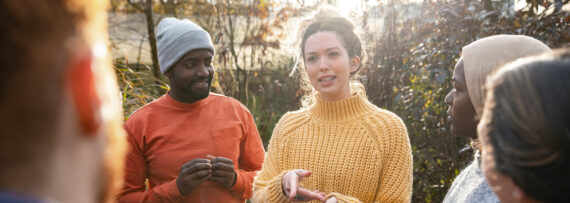“It is tiring those conversations with zoom, hangouts or Skype, it drains energy because you are not physically in one room.” It is a frequently heard complaint at the moment, thanks to the measures to eradicate the coronavirus. Also for coaches, psychologists and other professional counselors therapy and coaching sessions have been postponed. Online meetings have their limitations. In the following interview, I explain that you do make good contact on distance, as if you were together in the room. I give coaching and also provide online supervision sessions that enable you to make in-depth contact with your client.”
Robert Stamboliev
Why do people find it so difficult to make contact on distance, by phone or via Zoom FaceTime, etc.?
“People are too much on top of it. That also has to do with confidence in oneself. Online it is more difficult to feel if you are connected to someone else. Therefore you have to make a maximum use all your senses to achieve that. I currently give supervision sessions to professional counselors to develop this.”
We’re talking so much about it, but what is connection, anyway?
“After 30 years of experience in giving courses and training people as well as giving therapy with clients, I can observe well when people are connected. Connecting is a subjective thing: if two people experience connection, then there is connection. Of course there are also objective ways to establish connection, such as measuring brain waves. That is not my area. It’s about a feeling that something is in sync. Similar to when you make music together. It is more than through the mind that you understand each other. ”
Can you train that, connecting?
“Yes, first of all it is a matter of becoming aware of what you are already doing. Becoming aware of what you are capable of. Mothers connect with their babies. Or in your relationship with your partner. It is a natural, human fact. We call it Linkage. If you are in love you feel the connection super strong. Then you only feel that connection and the rest are in the background. It is so often an unconscious process and therefore people in a relationship can lose that connection over time. It is nice if you can learn to handle Linkage. Practice it with your partner. Sit opposite each other. Both consciously connect. One of the two thinks for a moment, without telling the other of something else, while you keep looking at each other. Raise your hand if you feel that the other person has left the connection.”
But how does it feel to connect?
“It is important for coaches and therapists to be able to observe connection. In order to feel connected to someone else, you first have to feel a good connection with yourself. A tool is that they make contact with their own body. I start the training with an awareness exercise of the body by saying “Sit down in such a way that you feel comfortable”. Then focus on the breathing. Any form of Yoga, Tai Chi or Mindfulness, helps with this. Someone incarnates in his body: here I Am. If you feel comfortable in the Here and Now, even if you are on your own, then you are already on your way and chances are that you are connecting. It often gives a relaxed feeling.”
And how do you do it?
“For me, connection is a physical experience and runs through the senses. My hearing sense plays an important role in making connections. This can be different for someone who is visually oriented. It is important to find out for yourself: through which senses do I connect? Because I know for myself that it is by ear, I make sure that I am tuned to that channel. A good exercise to find out is “have this conversation with your eyes closed”.
In fact, every professional coach should start an online conversation with consciously establishing connection, establishing Linkage. But also when you consult with colleagues. Take a moment to “arrive”, to be present. Make contact. After that, you can talk about the content. For business you can also have linkage. Business connection is less through physical energy, more with slightly impersonal mental energy.”
To what extent do you have to do your best to connect?
“It’s about control versus surrender. Or doing it yourself, versus letting go. It is about the balance between them. Consider, for example, the concept of “field”, which I often use in training and is about a connection with a larger whole. If you are dealing with, for example, grief and loss – with things that cannot be solved on a personal level by good tips – then as a coach you can also invite someone to make contact with that field. You experience there that you don’t have to do it all by yourself, that you can let go of what you think you should do. In principle, we are all already connected to that field, otherwise we would not be alive.
Rupert Sheldrake conducted research among monkeys. A group of monkeys on an island learned to wash potatoes. Monkeys on other islands followed suit and began to do so even though there was no discernible contact. It was in the field. Sheldrake calls it the morphogenetic fields. When working online, which now suddenly gets a boost in this corona time, many people feel that they have to steer, to check. And I think that more balance is needed between controlling the connection and letting go of it. A little more confidence in ‘the field’. ”
But we are so used to set our won course…?
“Thanks to the digitization of this individualized society, we still have to learn how to deal with it properly. It is precisely during this quarantine period that we can learn how to better deal with the dynamics of connection. Currently, we can practice with less sensory input in experiencing and trusting that there is something. It now requires us to investigate how we already connect effortlessly – with which senses – and how to use these consciously online.”
How is that going, an online coaching or supervision session with you?
“In a coaching or supervision session, I will ask, for example: make contact with me. Find out how you do that. I can also observe well via Zoom when someone opens or closes. Someone who can consciously open and close themselves will have better energy management. There are exercises for that. It is always about the subjective experience; that someone gets to know themselves better as a change agent, as a trainer, as a facilitator.”
Book a session of online coaching and online supervision















